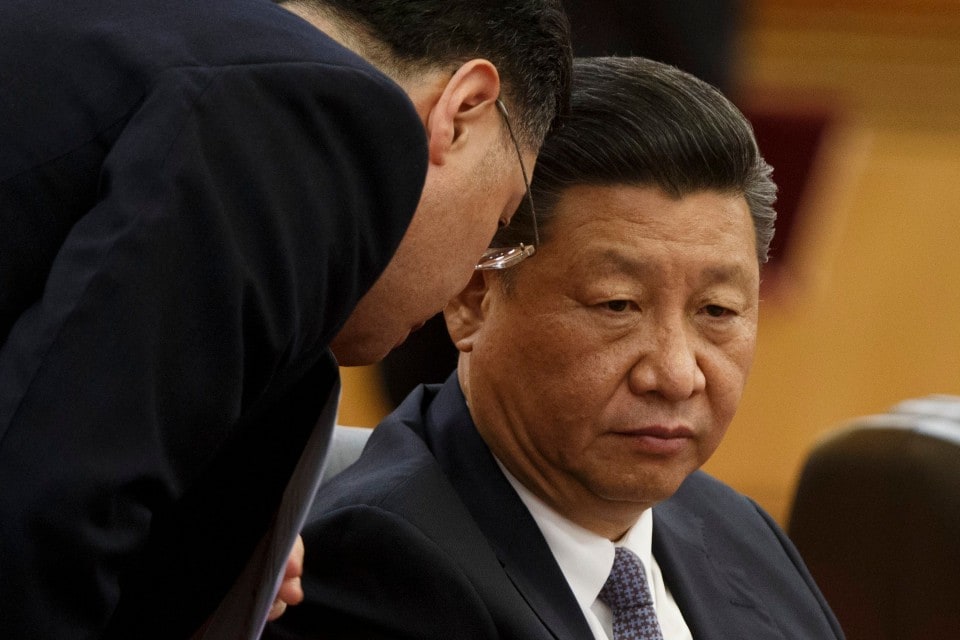Bing Song is the director of the Berggruen Institute China Center.
BEIJING — Ever since China announced that it would be establishing a social credit system by 2020, Western media has generally covered the issue with harsh criticism. Even politicians such as Vice President Pence have chimed in, claiming that “China’s rulers aim to implement an Orwellian system premised on controlling virtually every facet of human life.”
Indeed, China’s social credit system could result in alarming outcomes if it does not learn from the missteps of local pilot programs. For example, a number of students were barred from attending schools and universities because of their parents’ low credit scores. This had landed their parents on a national blacklist, a system that tracks “untrustworthy persons” based on their failure to honor court decisions, such as to repay debts. The pilot system clearly has a lot of challenges that need to be quickly addressed. However, it is also more complex and less sinister in its intent than the West’s neat dystopian vision suggests.
First, using the phrase “social credit system” for this massive Chinese social engineering effort is misleading. We typically associate “credit score” with a credit bureau’s assessment of one’s record of repaying debt. When extending this thinking to social spheres, it is easy to conjure an image of a single credit authority assigning scores to all aspects of one’s social and personal life. However, there is a great deal of confusion and uncertainty on the future direction of this massive social governance project. In a 2014 document, the Chinese government outlined its vision for such a system and noted that it involved four distinct segments: a government trust system, a commercial credit system, a social trust system and a judicial trust system. What drives this gargantuan project is an effort to build a culture of trust in Chinese society. Given this broad aim, a more appropriate term to describe the initiative is a “social trust system.”
Indeed, many measures introduced as part of the social trust system are intended to curb official corruption, tackle official dereliction and improve efficiency in enforcing court decisions, as well as punish unethical behaviors of professionals such as lawyers, doctors and teachers. Even local governments can make the nationwide blacklist. More than 480 city- and district-level governments are named. Senior officials from those governments suffer the consequences and can be barred from certain activities, especially high-end consumption like flights or staying in prestigious hotels, which is similar to travel restrictions for those who have filed for bankruptcy in countries like Australia or Singapore.
Restrictions like these, however, are meant to apply only to people who have defaulted on penalty payments or who have refused to comply with court decisions. Such penalties are meted out according to Supreme Court regulations — that is to say, no private scoring company or government agency (besides law enforcement institutions) are able to hand out such penalties.
Second, many Western media stories overstate the level of public and government consensus over the pilot programs, especially when applying scoring systems to social affairs. Right now, there are over two dozen local government pilot scoring programs, each with different types of grading systems, and a few commercial programs as well. The point of pilot programs is to explore boundaries.
These programs have thus been revised or revoked at times, depending on public reception. For instance, Suining County in Jiangsu Province was one of the first local governments to roll out a grading system for its residents, giving them an A through D mark. It sparked heated debates. The most contentious aspect was the inclusion of point deductions for “unauthorized” petitions. (It is fairly common for Chinese citizens to travel to Beijing to petition higher level authorities to address their grievances because of the people’s lack of trust in lower level governments, but petitions are considered unauthorized if they are “disturbing or disruptive,” for instance.) The media and public backlash forced the county mayor to apologize and revise the scoring system.
Third, most Western reports on China’s social trust system sidestep the reality that there are different cultural expectations of the government in China than in other countries. China’s governance tradition of promoting good moral behavior goes back thousands of years. In recent decades, as the economy took off and people’s living standards improved dramatically, fraud and technology-enabled economic crimes proliferated as well. Fraud is now so widespread that anyone who has lived in China in recent years has most likely experienced it in some form. Another widespread social ill today is the difficulty in enforcing court decisions, as mentioned earlier. Given all these problems, a system that bolsters trust is seen by many Chinese citizens as necessary.
Again, China’s social trust initiative is not without its challenges and risks. Apart from oft-cited concerns about data privacy and potential abuse, more clarity is needed on the policy goals and values underlying this project. The central government should commence a broad-based discussion and consultation process involving scholars and policy advisers to examine the potential downsides of using the scoring systems in social contexts and to continually evaluate the pros and cons of the experiments carried out by local governments. Including during the pilot stage, rules and regulations are needed to constrain overzealous local officials who could use such scoring systems too broadly.
Social governance in the digital age is a global challenge. Rather than instantly dismissing China’s unconventional governance innovations, we need an open-minded discussion of the pros and cons — one that is sensitive to the challenges and priorities of different cultural and political contexts.
This was produced by The WorldPost, a partnership of the Berggruen Institute and The Washington Post.




